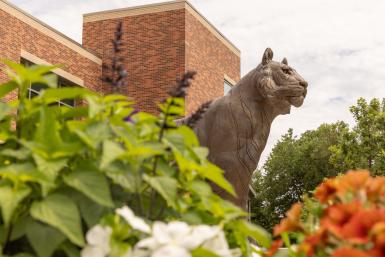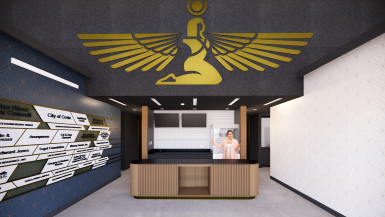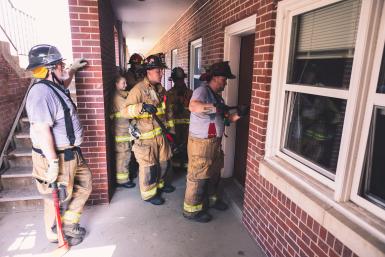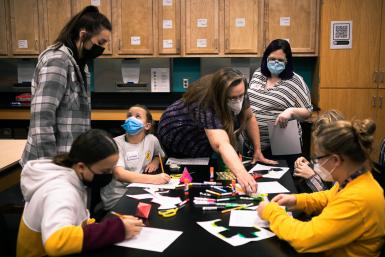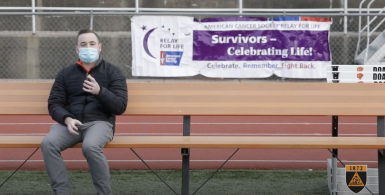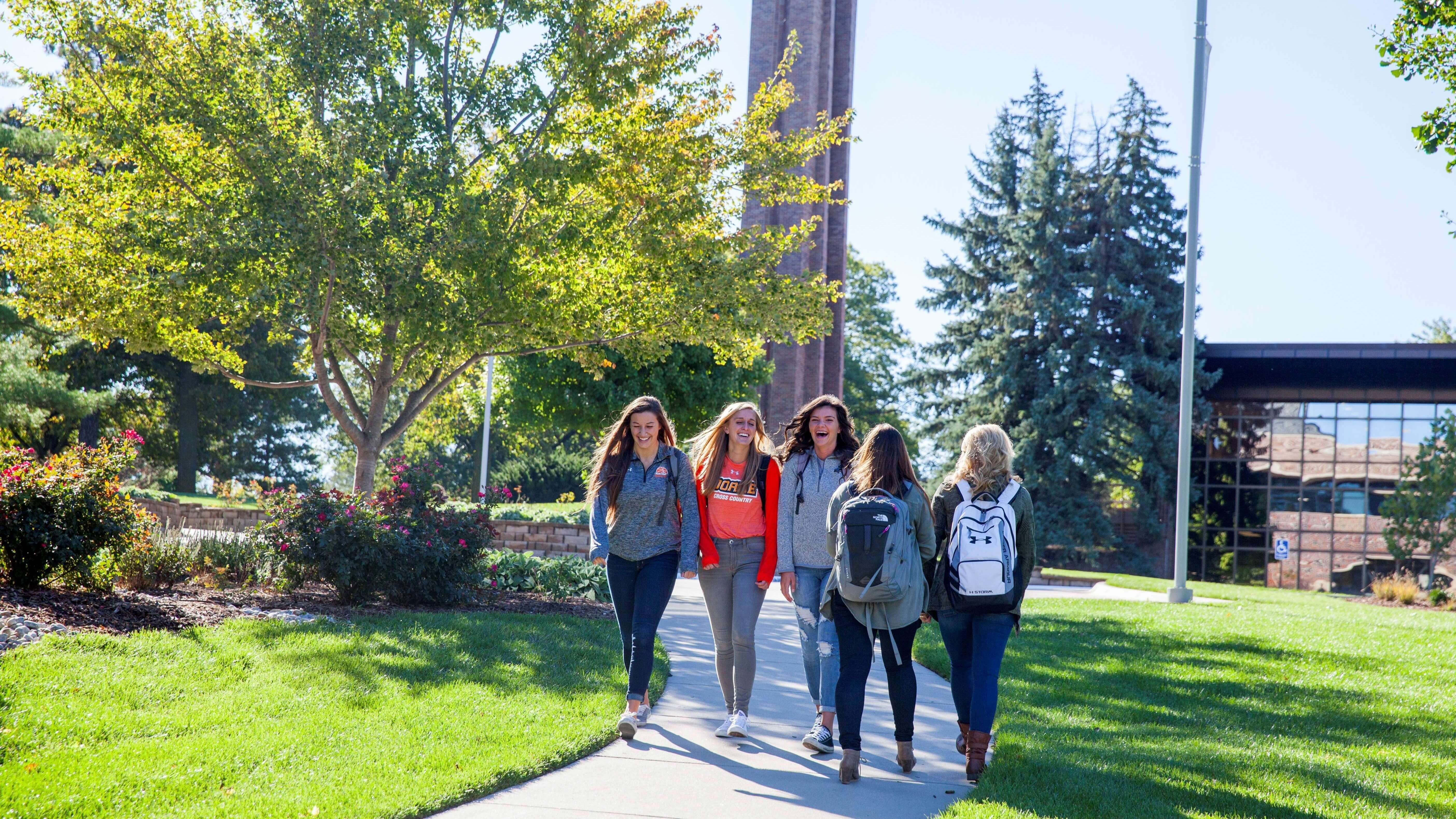
Your Community-Focused College in Nebraska
Service learning is part of our mission, and Tiger students and alumni live it. Each year, hundreds of students spend thousands of hours volunteering in Crete, Bellevue and Lincoln.
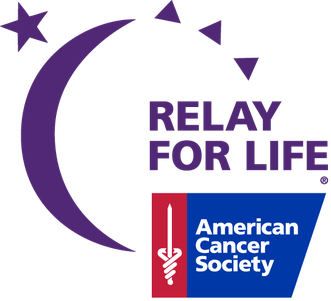
Relay for Life
Free tax return preparation
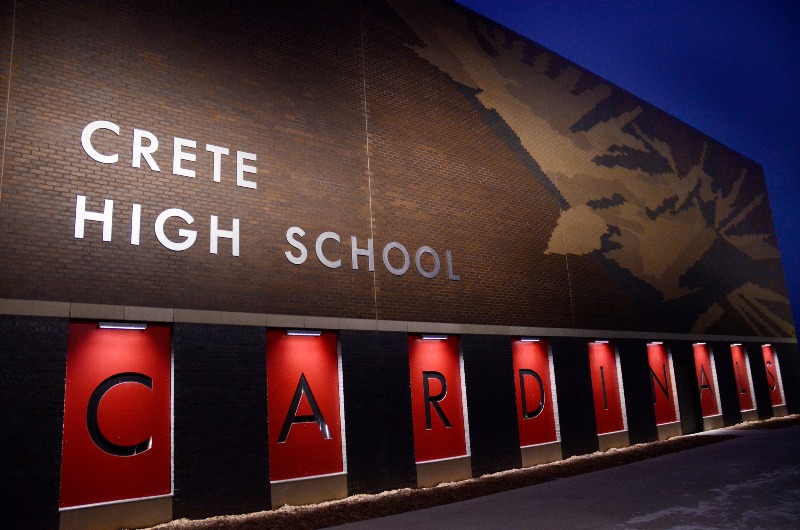
Doane/Crete Adapted P.E. Course
Community News & Events
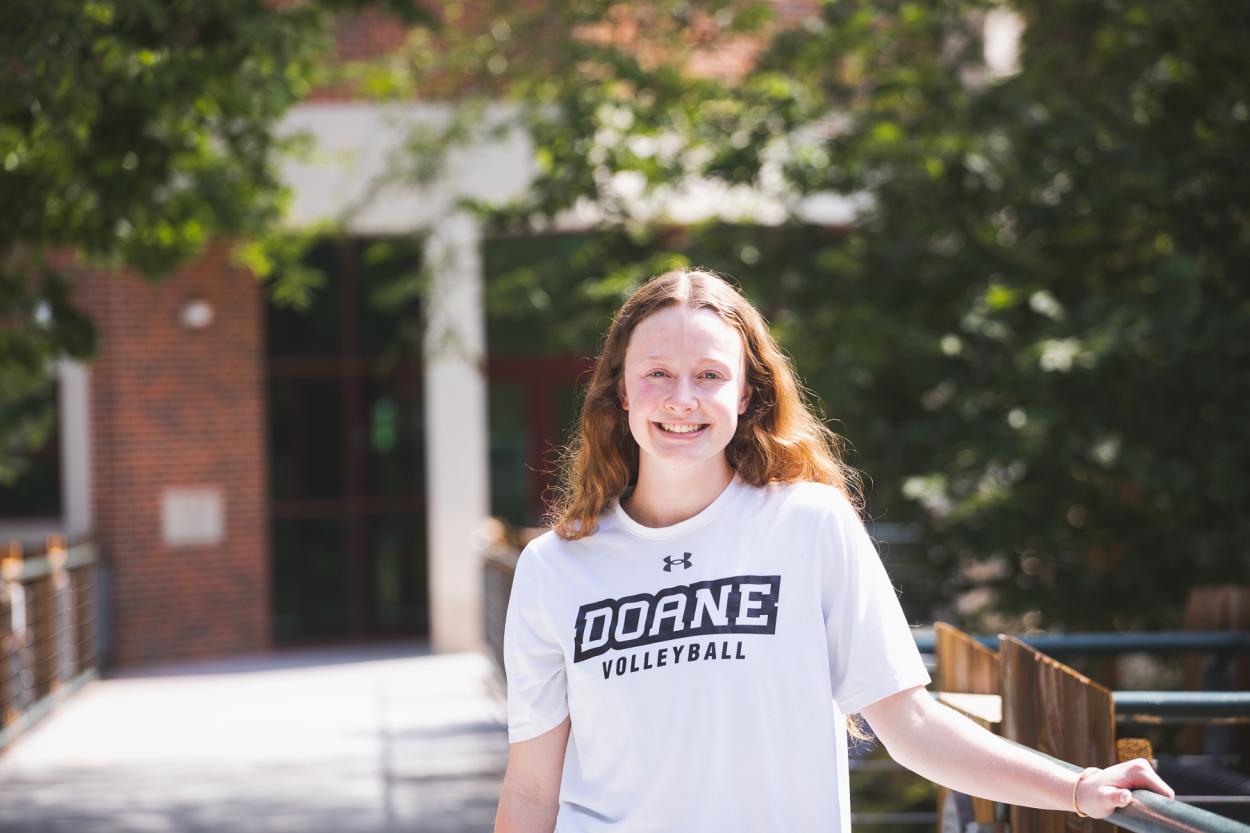
All News & Events
Not just for pets — Nestlé Purina and Doane partnership builds on community connections to provide skills and learning opportunities

March 22, 2022
Doane University Presents Seventh Annual Polk Lectureship
February 11, 2022
“The Flora of the Nebraska Tallgrass Prairie: Past and Present.” Public Exhibit
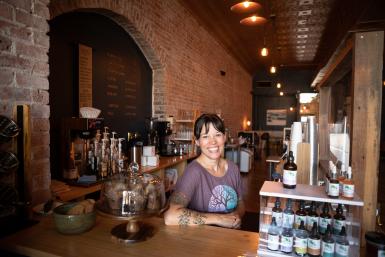
August 31, 2021
Artisan Mark hits the spot
Since 2019, Artisan Mark has provided the city of Crete with gourmet coffee and gluten-free eats, clothing and goods from local or women-owned businesses, and a perfect atmosphere to study, work or meet up with friends. The shop is owned by Elayne Woods Jones ‘13L.
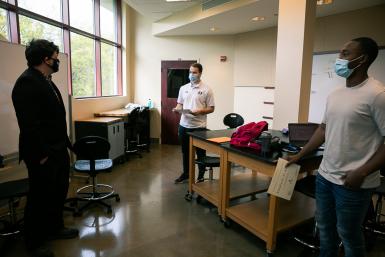
August 2, 2021
Engineering students partner with Edgerton Explorit
The Explorit Center collaborated with Joel TerMaat, assistant professor of engineering and physics at Doane University-Crete, and his sophomore Engineering Design class to create innovative displays based on the work of American cartoonist Rube Goldberg, whose endeavors spanned a large part of the 20th century. The merging of science and art was a great fit for the partnership between Doane and the center, he said, matching Doane’s philosophy.
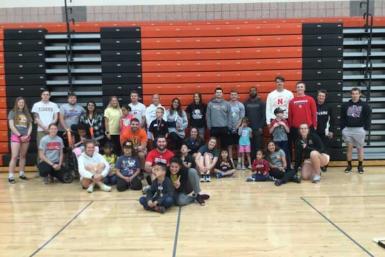
February 22, 2021
Adapted PE course pairs Doane students with Crete students who have special needs
Before COVID, Fridays were for line dancing and gliding on scooters in the Haddix Center gym. Friday was the day to practice catching with handkerchiefs and beach balls. And most of all, Fridays were the day for students in Crete Public Schools Life Skills classes to spend time with their favorite Doane students and vice versa. In the time between the sessions of the Unified Doane/Crete Adapted Physical Education Course, Crete High Special Education Teacher Jessie Meinke heard the same question many times from her students: “Is it a Doane PE day? When are we going to Doane again?” She is hopeful COVID restrictions will ease and allow the course to resume next fall. “It means so much to my students,” she said. The unified course got its start on the bleachers at a Doane basketball game. Cindy Meyer, Associate Professor of Physical Education and Health, sat next to Lisa Fye, Principal of Crete’s Intermediate School. Bleacher talk turned to Meyer’s changing role at Doane after retiring from 26 years as its head volleyball coach. Meyer had more time to devote to her courses now and wanted to create new opportunities for physical education students to gain practical experience, particularly through partnerships with Crete Public Schools. The conversation sparked ideas and plans for the unified course. The Adapted PE class pairs Doane students - many who are studying physical education, exercise science, or therapy - with CPS students with varying disabilities that make it harder to learn the fundamental motor skills of sports and fitness activities. “We call them ‘our Cardinal friends,’” Meyer said. “It’s an amazing experience. Not just the teaching, but the friendships and bonds that form. Both sides gain much.” It’s where some of the Cardinals learn to throw, dribble, bat or exercise for the first time. As Doane students learn how disabilities influence motor performance they also come to realize that some lesson plans can’t be one-size-fits-all. Technically, the Crete students are learning the fundamentals of sports and fitness, Meyer said. For the elementary and intermediate school students, each activity teaches the form behind basic skills like running, throwing and jumping, while also improving coordination. The middle and high-school students play sports activities as well. “Cindy is so fundamental about teaching the correct form, whether it’s shooting or running. All the foundations are very well taught, but it never feels like a lesson to my students. It’s just fun,” Meinke said. Her students never know what activity they will find on campus, she said. They might toss rings, try the low balance beam or take their turn with baseball tees and bats. They might pull a parachute into a tight circle and try to fling a toy tiger and cardinal in the air. The “Hungry Hippo” game -- racing on scooters to retrieve tennis balls -- is a favorite. “I can’t imagine how much time (Cindy) spends setting all the stations up and teaching her students the preparations behind the class,” Meinke said. “She has high expectations for her Doane students and how they should interact with (Crete) students and it shows.” That’s why, Meinke said, the Crete students feel welcomed, understood, cared for and supported by their Doane role models and friends. The activities adapt to the challenges the Crete student faces in a PE setting. A student with a cognitive or behavioral challenge may simply need a little extra time to learn form and strengthen motor skills, while a student who uses a walker for support or an iPad to communicate may need one-on-one or two-on-one instruction adapted to their needs. If a group session is overwhelming one of their Cardinal friends, a Doane student may pull him or her off to the side for individual instruction. Meinke shared how one young boy didn’t have an interest in any of the structured activities, but the Doane students realized he liked the scooters. So they pulled him on the scooter for a portion of the class, letting him enjoy the motion and practice his balance. Successes are individual and always celebrated. Meyer notices the growth and improvement in each student, even from year-to-year. One Crete student didn’t want to participate in activities or interact with the Doane students his first year but now tries many of the lessons. Another student liked playing with a ball but not sharing or playing a game with it. By the third year, he rolled it back to one of the students, which was cause for celebration. “That was huge!” Meinke said. “He learned to share and play with another person.” It’s one example of why Meinke doesn’t like to use the word ‘disability.’ “Everyone has an ability and we have high expectations for them. For some kids, throwing may take hundreds of repetitions, but they will get it.” When Meyer learns that a Crete student gained confidence through her course that now helps them in other settings, it’s a highlight, she said, along with the relationships that form. “The kids get to work with college students and collegiate athletes, and those students become their role models and friends. My students get just as much or more back and admire the Crete students, too.” Doane students wouldn’t have this important teaching opportunity without the support of CPS, Meyer said. “You really can’t teach adapted PE at a university without giving students the opportunity to work with individual kids like we do. So I'm really grateful to the Crete school system.” Fye gives credit to Meyer, though. “This (course) is because of her vision. She truly takes pride in this class and how well her students are prepared to go out into the real world.This partnership is special,” Fye said. When Fye gets to observe the Unified course, she’s always struck by its energy and enthusiasm. “The excitement between the kids, the Doane students and the adults when someone succeeds - it’s so rewarding.” The Unified course ends its year with bowling in Wilber. Meyer brings treats and it’s generally a great day for everyone. The Crete students return to their school “tired, happy and thirsty,” Meinke said. And almost as soon as it ends she knows the questions will start again like clockwork. “When are we going to Doane again…?”

